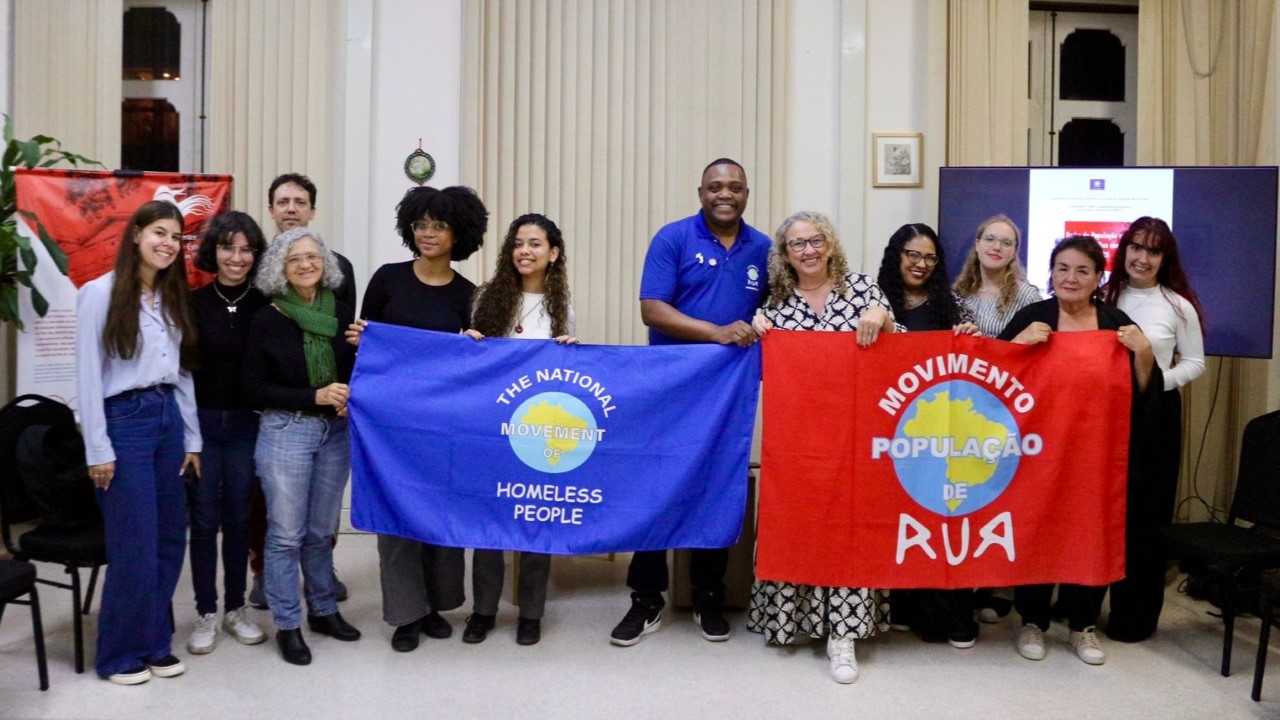Movement Presents Report on Homeless Population in BRICS Countries
In Rio de Janeiro, specialists came together to shed light on the social invisibility of homeless populations in the 11 BRICS countries and to highlight the urgency of adopting structural policy responses

By National Movement of the Homeless Population (MNPR)
On 24 June, the BRICS Policy Center (BPC) in Rio de Janeiro hosted the official launch of the report “BRICS and the Invisibility of the Homeless Population,” published by the National Movement of the Homeless Population (MNPR). Flávio Lino, secretary of the Movement’s Rio chapter, unveiled the report’s novel data on living conditions for unhoused people across the 11 BRICS member states and highlighted weaknesses in implementing the Sustainable Development Goals (SDGs) as they pertain to these social groups.
During the event, Lino thanked BPC Director Marta Fernández for the ongoing collaboration between the two entities. He recalled a previous appearance at the BPC to launch a report under the auspices of the G20, noting that the visibility gained then opened new avenues for international advocacy. As a significant development, he announced that the MNPR has been invited to participate in the next G20 meeting in South Africa with its own dedicated panel on homelessness.
Compiled from public-domain data and published in the 11 official languages of the BRICS countries, the report offers a comparative view of homeless populations, with breakdowns by gender, age group, and LGBTQIAPN+ identity. The study exposes significant gaps in member states’ commitments to SDGs on dignity, housing, access to services, and fundamental rights for this community.
According to Lino, the absence of targets specific to homeless populations lays bare a lack of political drive to nurture sustainable reintegration strategies. “Most public policies today are temporary and hinge on prerequisites that ignore these people’s realities, such as demanding documents that many of them simply do not have,” he said. While acknowledging the essential role of NGOs and religious organizations, he stressed the need for structured, state-led actions.
The secretary thus called for the creation of a dedicated Sustainable Development Goal focused on homeless populations—one that would anchor lasting, integrated policies with global scope. He noted that, with Brasil currently presiding over BRICS, the country is well positioned to take the lead in advancing this agenda. “It is time to go further and forge a collective commitment among nations. Genuine progress only happens when countries face their challenges with a willingness to change and cooperate.”
The full event can be watched on the BRICS Policy Center’s YouTube channel:
English version: Tadeu Azevedo (POET/UFC)
Proofreading: Luana Ferreira de Freitas (POET/UFC)